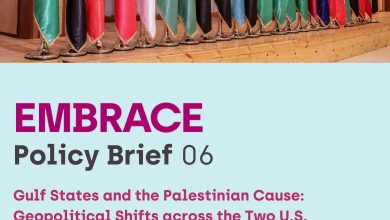A dialogue meeting entitled “What is happening in America: Observations from the field.”

Pal-Think for Strategic Studies has organized a dialogue meeting, this week, entitled “What is happening in America: Observations from the field” via Zoom. American rights-activist in “Black4Palestine” group, Paula Roderick, and Palestinian researcher Jehad Abusalim, to talk about the demonstrations of the Blacks in the United States. Among participants were a group of intellectuals and researchers; targeted as a part of Pal-Think’s efforts to disseminate knowledge and highlight the latest developments in the region and around the world.
The meeting was opened by Mr. Omar Shaban, Director of Pal-Think, welcoming the participants: “Pal-Think is an independent Palestinian institution that works from Palestine and holds regular meetings with experts from all over the world in a continued efforts since 2007 to spread knowledge among the Palestinian community about what is going on in the world”.
The activist Paula Roderick – member of the Chicago Coalition against Racism and Political Repression- began her contribution by thanking Pal-Think for hosting her, then said: “The Black Lives Matter movement does not have one leader; they are all leaders”, she added that: “the murder of George Floyd tells us what oppression and racism blacks are suffering from for years in the US”.
Roderick added that: “There is a tendency to believe that murdering blacks is something new and traumatic because it has been documented and has received a wide media coverage in America and the world, but in fact, murdering the American blacks began since ancient times, as in 1951, African Americans went to the United Nations and complained that the United States had committed genocide against them. Blacks filed a petition showed that racism was not new but old despite the formal abolition of slavery, so from the point of view of the blacks in America; the police system is a real manifestation of racism”.
Paula Roderick added that: “In 2012, a black American child was killed by a white American. The consequences of these acts were strengthening the connection between the black American activists and the Palestinian activists, in which some black American activists visited Palestine; to benefit from the Palestinians in their struggle against the Israeli occupation”.
She Continued that: “Events climaxed in 2014, when another hashtag showed up, entitled (Say Their Names), referring to the blacks who were killed in America that year, in which strong and remarkable demonstrations took place at that time. Taking into account that it had been a tough year for the blacks living there. In 2016, the police had encroached on sacred place for indigenous people, that led the latter to an uprising in America. Also, during the Coronavirus pandemic, American black people were killed in America by white Americans there, and the passers-by filmed the killing of George Floyd.
She added that: “I am cautiously optimistic about the current protests; because we did not see before, this number of people demonstrates in the streets, this much, but the lack of economic equality between the poor and the rich, and the racial racism in the American society may impede the blacks to continue their protests.”
Jehad Abusalim shed light upon the political and ideological divisions in the American society, and talked about its effect on the US relations with Palestine.
Moreover, he presented some of the changes that took place in America, and their effects on the Palestinian cause. In particular, the growing awareness within the American society of what is happening in Palestine because of social media, the existence of generational divisions in the American Jewish community, the impact of recent changes within the Democratic Party such as: Sander’s campaign, the rise of Rashida Tlaib and Elhan Omar, the continued growth of the solidarity movement with the rights of the Palestinian people, the access of the Palestinian people’s rights supporters to decision-making centers, and the rights of the Palestinian people are now supported by cultural and artistic figures openly without the fear of the traditional consequences, in addition to the biggest black American intellectuals’ support for the Palestinian cause.
He concluded with a few observations, most notably: the inclusion of the Palestinian Cause within the progressive movement in the United States will not be easy, and there are major structural and institutional obstacles in meeting the demands of the marginalized groups in the American society like black people, migrants from Latin America, and racial and social minorities. The same obstacles are faced by the Palestinians and their supporters in the American society, besides, the political and legal repression.
Furthermore, he added that the success of the progressive movement in America will have positive repercussions both inside and outside the United States, as well as on the Palestinians. Abusaslim continued by emphasizing that the Palestinians, especially those in the United States, must confront racism against black people, and build stronger relations with the black community. At last, the movement of the blacks will make America more democratic and will open a door for Palestinians to further advocate their rights.
















